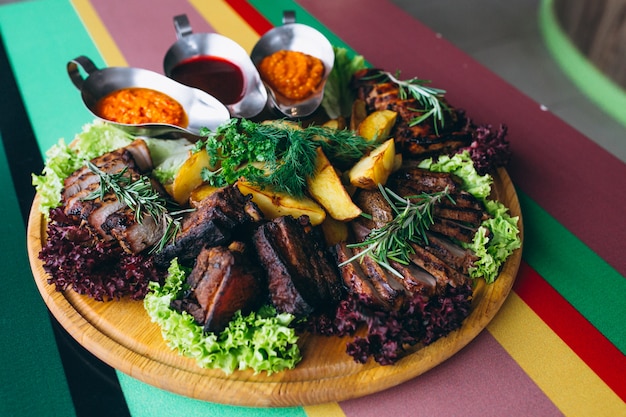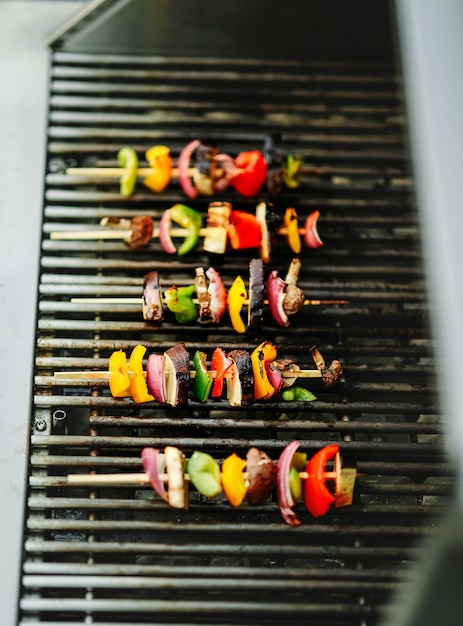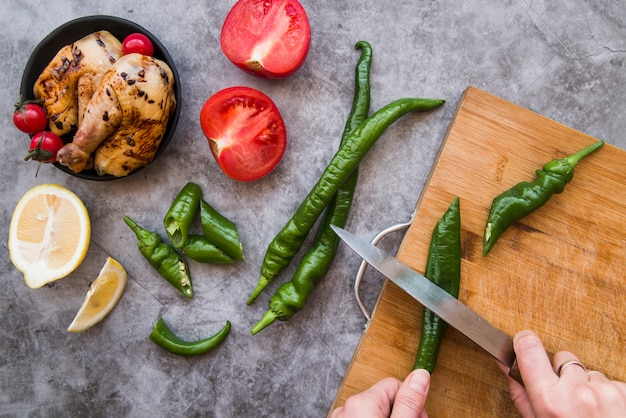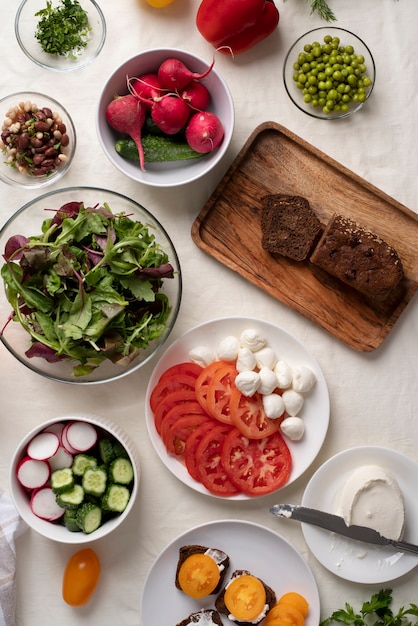Should I oil vegetables before grilling?
Grilling vegetables is a popular and healthy option, but there’s often confusion around whether or not to oil them before placing them on the grill. In short, the answer is yes, you should oil vegetables before grilling. Oiling your veggies helps to prevent sticking, promotes even cooking, and adds delicious flavor to your dish. However, there are a few important considerations to keep in mind when it comes to oiling vegetables for grilling.
Selecting the right oil
When it comes to choosing an oil for grilling vegetables, it’s best to opt for oils with high smoke points, such as canola, avocado, or grapeseed oil. These oils can withstand high heat without burning, which is essential for achieving that charred and caramelized flavor on your grilled vegetables. Avoid oils with low smoke points, like olive oil, as they may start to smoke and develop off-flavors when exposed to high heat.
Prepping the vegetables
Before grilling, make sure to wash and dry your vegetables thoroughly. This process removes any dirt or debris and ensures that the oil adheres properly. Additionally, some vegetables benefit from being cut into smaller or more manageable pieces. For example, thick slices of eggplant or zucchini are easier to handle on the grill and cook more evenly.
Applying the oil
To oil your vegetables, you can either brush them with oil using a basting brush or toss them in a small amount of oil in a bowl. Be sure to coat each piece evenly, but avoid using too much oil as it can cause flare-ups on the grill and result in a greasy final product. A light coating is all you need to enhance the flavor and prevent sticking.
Grilling tips
When grilling vegetables, it’s important to preheat your grill to medium-high heat. This allows the vegetables to cook quickly and develop those desirable grill marks. Remember to oil your grill grates as well to prevent sticking. Arrange the vegetables in a single layer on the grill and avoid overcrowding the space, as this may prevent even cooking. Keep an eye on your veggies and turn them occasionally for even browning.
Enjoying the results
Once your vegetables are grilled to perfection, remove them from the grill and season with salt, pepper, or your favorite herbs and spices. Grilled vegetables make a fantastic side dish for any meal and can also be used in salads, sandwiches, or as a topping for pizzas. Experiment with different vegetable combinations and flavors to create your own delicious grilled masterpieces.
“Grilling vegetables brings out their natural sweetness and adds a smoky depth of flavor. Don’t forget to oil them before grilling for the best results!”
Do you put oil on vegetables before roasting?
Roasted vegetables are a delicious and healthy addition to any meal, but do you know whether you should be adding oil before popping them into the oven? The answer is yes! Adding oil to your vegetables before roasting helps to enhance their flavor, promote even cooking, and give them a crispy texture.
Why should you use oil when roasting vegetables?
When vegetables are roasted, they tend to dry out and lose some of their natural moisture. By coating them in oil, you create a protective barrier that helps to lock in moisture and prevent them from becoming too dry or tough.
Additionally, oil helps to conduct heat more evenly, ensuring that your vegetables cook uniformly. This results in a perfectly roasted dish with an appetizing golden-brown color.
How should you coat your vegetables with oil?
The best way to coat your vegetables with oil is to toss them in a bowl with a drizzle of oil, salt, and any additional seasonings you prefer. Make sure each piece is evenly coated before spreading them out on a baking tray or sheet.
Note: Be careful not to use too much oil, as this can lead to greasy vegetables. Instead, aim for just enough to lightly coat each piece.
Pro tips for perfect roasted vegetables:
- Preheat your oven to ensure a hot cooking environment.
- Cut your vegetables into uniform sizes for even cooking.
- Spread them out in a single layer on the baking tray to avoid overcrowding.
- Roast at a high temperature (around 200°C) for a shorter time to achieve crispiness.
- Give the vegetables a gentle toss halfway through cooking to ensure they cook evenly on all sides.
“Roasting vegetables with a little oil not only adds flavor but also helps to preserve their natural moisture and create a crispy exterior.”
So, next time you’re preparing roasted vegetables, don’t forget to coat them with a touch of oil for a flavorful and crispy result. Enjoy experimenting with different types of oils and seasonings to discover new taste combinations that suit your palate!
What Happens If You Roast Vegetables Without Oil?
Roasting vegetables is a popular cooking method that brings out their natural flavors and enhances their texture. While many recipes recommend tossing vegetables in oil before roasting, you might be wondering what happens if you roast vegetables without oil.
No Oil, No Problem: Roasting vegetables without oil can still yield delicious results. The absence of oil allows the vegetables to retain more of their natural flavors while achieving a lighter and more textured outcome. Additionally, roasting vegetables without oil can be a healthier option for those looking to reduce their caloric intake or follow a low-fat diet.
Benefits of Roasting Vegetables Without Oil:
If you choose to roast vegetables without oil, several benefits can be observed:
- Less Fat and Calories: By omitting oil, you can significantly reduce the calorie content of your roasted vegetables. This can be ideal for individuals watching their weight or following a strict diet plan.
- Natural Flavors: Roasting vegetables without oil allows their natural flavors to shine through and intensify during the cooking process. This can result in a more vibrant taste experience.
- Lighter Texture: Without oil, roasted vegetables may have a lighter, slightly crisp texture. This can be appealing for those who prefer vegetables with a bit of crunch.
Tips for Roasting Vegetables Without Oil:
To achieve the best results when roasting vegetables without oil, consider the following tips:
- Preparation: Ensure that the vegetables are cut into similar-sized pieces to ensure even cooking.
- Seasoning: Toss the vegetables with your desired seasonings, such as herbs, spices, or garlic, to enhance their flavor profile.
- Parchment Paper: Line the baking tray with parchment paper to prevent the vegetables from sticking and facilitate easy cleanup.
- High Temperature: Roast the vegetables at a high temperature, around 425°F (220°C), to promote caramelization and achieve a crispy exterior.
Roasting vegetables without oil can be a delightful way to enjoy their natural flavors while reducing calorie intake. With the right techniques and seasoning, you can create a delicious and healthy dish.
Remember, it’s always essential to experiment and adjust cooking times and temperatures based on personal preference and the type of vegetables being roasted. So go ahead and give oil-free roasting a try and discover a new way to enjoy your favorite vegetables!



